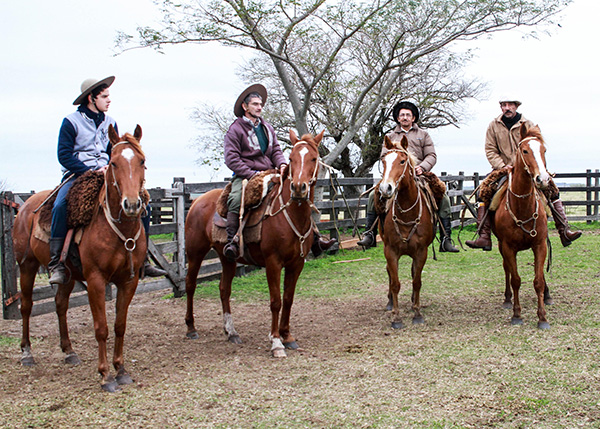AQHA Approves Rule Allowing International Members to Wear Traditional Attire in Versatility Ranch Horse
AQHA Publicity
In the United States, cowboy hats, chinks or chaps, and Wrangler jeans are considered traditional attire in AQHA Versatility Ranch Horse classes. But those aren’t the traditional garments of the vaqueiros in Paraguay, the sabaneros in Costa Rica, the gauchos in Uruguay or the vaqueros in Mexico.
In 2011, the AQHA Executive Committee approved a rule change allowing international exhibitors to show in their respective country’s traditional attire in Versatility Ranch Horse classes, illustrated and supported by Rule SHW556.9: For shows conducted in international countries, the exhibitor has the option of wearing traditional attire of the country.
“This rule allowed flexibility for our international exhibitors, who often show in traditional attire in other horse and livestock classes at the same events at which they show in AQHA classes,” says AQHA Chief International Officer Anna Morrison. “Further, it shows our recognition of and respect for the many cultures that contribute to and participate in our global organization, many of which have their own horse-related histories, traditions and attire.”
To create clarity and consistency in AQHA international classes, the Executive Committee recently approved the addition of that the same verbiage as Rule SHW320.7 in the Western and English Attire section of the AQHA rulebook:
SHW320.7: For shows conducted in international countries, the exhibitor has the option of wearing traditional attire of the country. Traditional attire shall not encompass informal attire such as baseball caps and T-shirts, but rather the industry standard for historical dress for the local or regional agricultural industry. This rule shall not supersede the requirement for ASTM/SEI headgear in over fences classes as outlined in SHW320.2.
SHW320.7 will be effective January 1, 2019.











